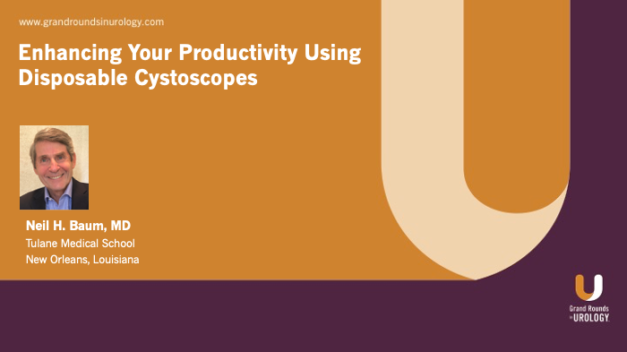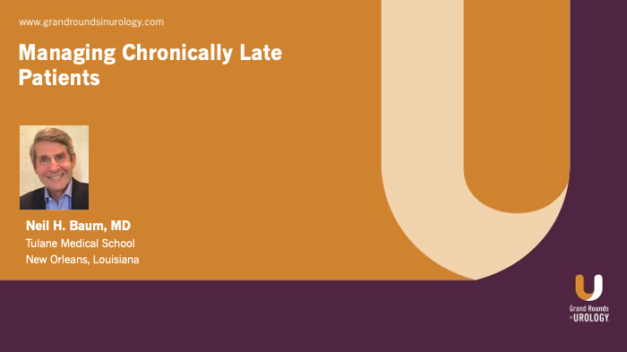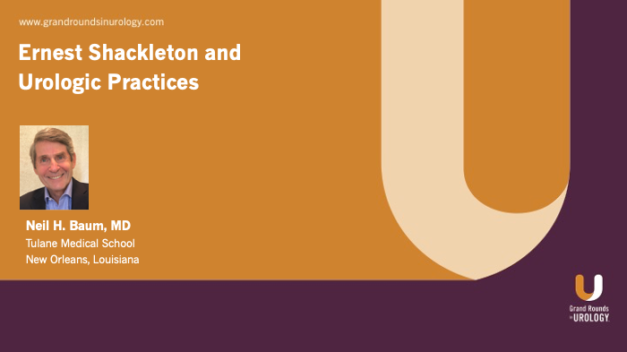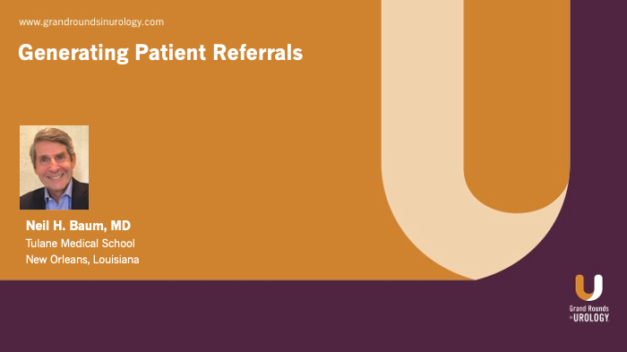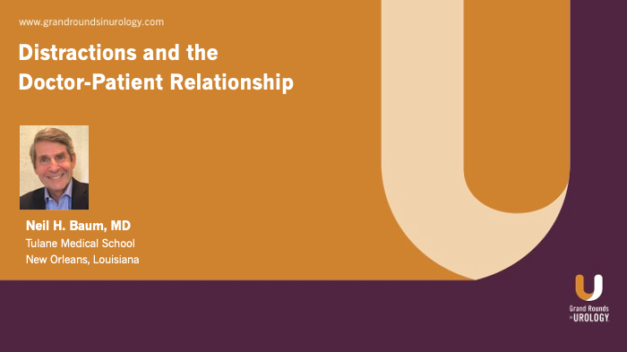Enhancing Your Productivity Using Disposable Cystoscopes
In this 7-minute video, Grand Rounds in Urology Contributing Editor Neil H. Baum, MD, Professor of Urology at Tulane Medical School, discusses the use of disposable cystoscopes to improve physician productivity and efficiency without additional overhead or compromising patient care.
Read More
